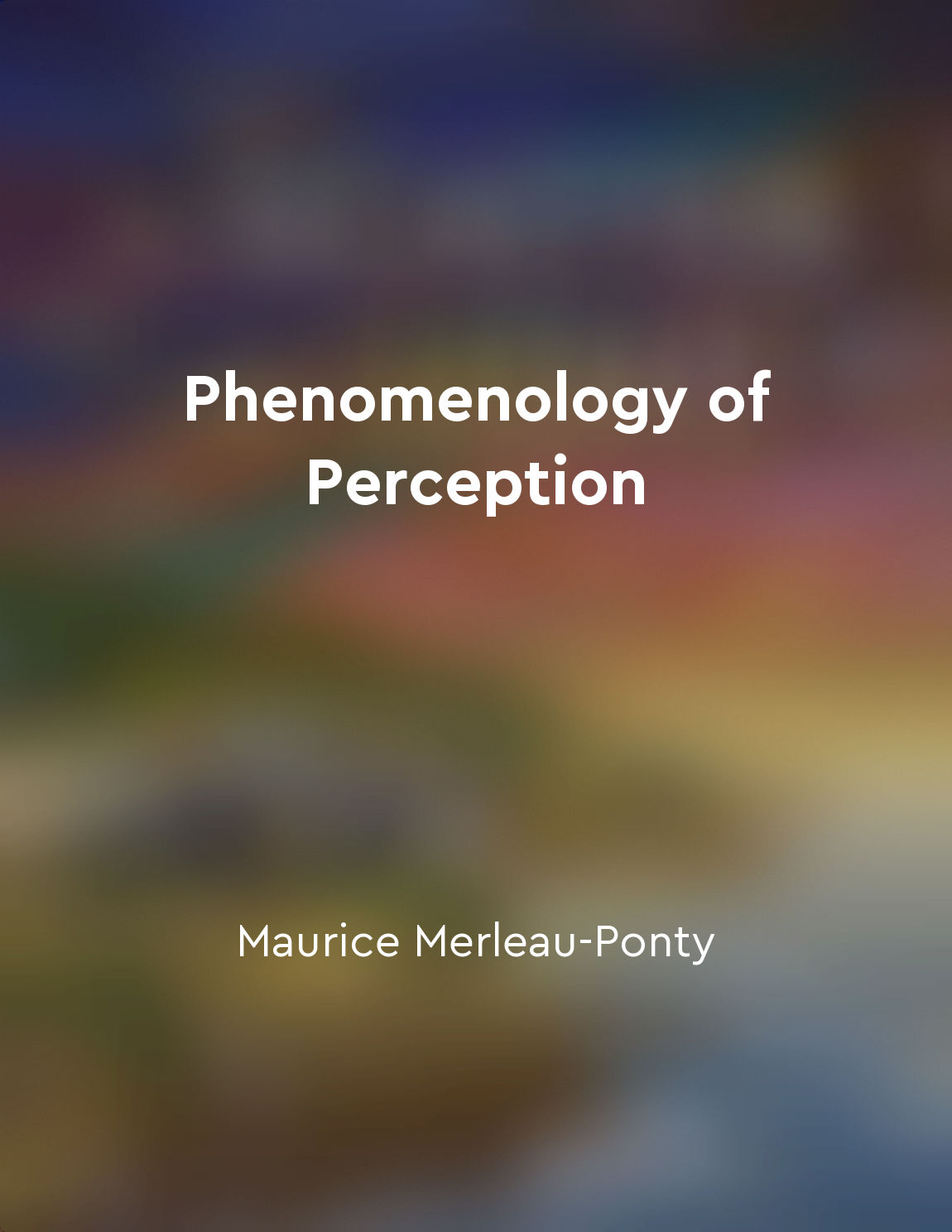Perception is a form of embodied consciousness from "summary" of Phenomenology of Perception by Maurice Merleau-Ponty
Perception is not a purely mental process, as commonly believed. It is not just a matter of the mind receiving external stimuli and translating them into conscious experiences. Rather, perception is a dynamic and intricate interaction between the body and the world around us. Our bodies are not just passive receivers of sensory information; they actively engage with the environment and shape our understanding of it. Our consciousness is not detached from our bodies, but rather intimately connected to them. Our bodily experiences, movements, and sensations all play a crucial role in shaping how we perceive the world. Our perceptions are not just abstract mental representations; they are deeply rooted in our embodied experiences. We do not simply see objects as static entities; we perceive them in relation to our own bodily movements and sensations. Our bodies are not just a vessel that carries our consciousness; they are an integral part of our consciousness. Our bodily experiences and movements are not separate from our mental processes; th...Similar Posts
Emergence of life due to energy and fundamental forces
In the vast expanse of the cosmos, where galaxies swirl and stars shimmer, the emergence of life is a profound mystery that has...
Rewire your brain with new habits
To change is to be greater than your body, your environment, and time itself. It requires an act of will, a conscious decision ...
Importance of Doubt
Doubt plays a crucial role in the pursuit of knowledge. It is through doubt that we question our assumptions, beliefs, and know...
The mind can compensate for visual deficits
Oliver Sacks explores the remarkable ability of the mind to adapt and compensate for visual deficits in individuals with condit...
The quest for knowledge should never end
It is a fundamental belief that the pursuit of knowledge is a never-ending journey that should be embraced by all individuals. ...
Brain areas interact
The brain is a complex organ made up of different areas that work together to allow us to think, feel, and act. These brain are...
Common sense often guides human reasoning
Human beings are naturally inclined to rely on common sense when it comes to making decisions and forming beliefs. This innate ...
Engaging in physical activities promotes overall wellness
Physical activities play a crucial role in promoting overall wellness. Engaging in exercises, sports, or any form of physical m...
Practicing gratitude can rewire the brain for positivity
Practicing gratitude is a powerful tool for transforming your brain and your life. When you actively focus on the things you ar...
Achieving mental balance and harmony
The idea of achieving mental balance and harmony is a central theme in the teachings of Buddhism. This concept encompasses find...

